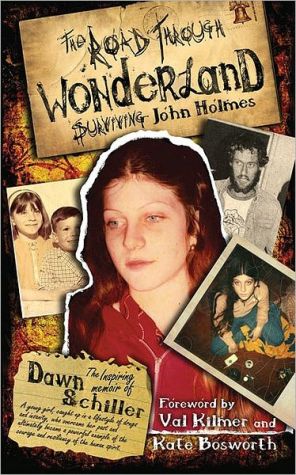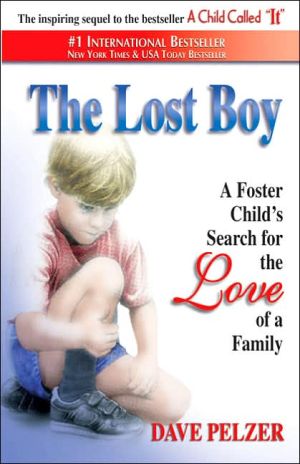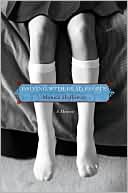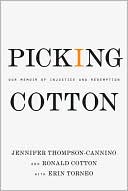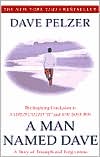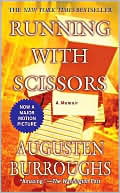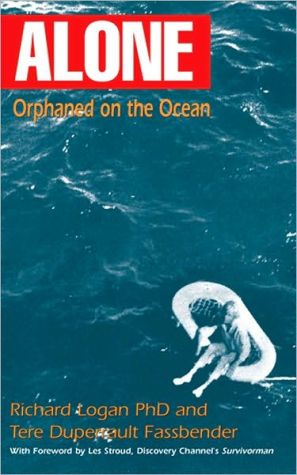The Road Through Wonderland: Surviving John Holmes
"The Road through Wonderland is Dawn Schiller's chilling account of the childhood that molded her so perfectly to fall for the seduction of "the king of porn," John Holmes, and the bizarre twist of fate that brought them together. With painstaking honesty, Dawn uncovers the truth of her relationship with John, her father figure-turned-forbidden lover who hid her away from his porn movie world and welcomed her into his family along with his wife." "Within these pages, Dawn reveals the perilous...
Search in google:
Painstakingly honest, this chilling memoir reveals how a teenager became immersed in the bizarre life of legendary porn star John Holmes. Starting with a childhood that molded her perfectly to fall for the seduction of “the king of porn,” this autobiography recounts the perilous road that Dawn Schiller traveled—from drugs and addiction to beatings, arrests, forced prostitution, and being sold to the drug underworld. After living through the horrific Wonderland murders of 1981, she entered protective custody, ran from the FBI, and turned in John Holmes to the police. This is the true story of a young girl’s harrowing escape from one of the most infamous public figures, her struggle to survive, and her recovery from unthinkable abuse. Publishers Weekly The 2003 movie Wonderland vivified Schiller's teenage experience under the thrall of a drug-addled porn star in L.A. in the late 1970s, while this long docudrama expands on that raw era to include her peripatetic, dysfunctional upbringing and aftermath as a survivor. The daughter of a Vietnam vet and a German woman he met and married overseas, Schiller spent her early years moving around to accommodate her father's military career, especially between New Jersey and the suburbs of Miami. After a free-wheeling road trip, the family ended up in Glendale, Calif., where Schiller met John Holmes, the charismatic 32-year-old married manager of an apartment complex they happened to crash in. Holmes clearly took on a fatherly role to young Schiller, whose own father left her to her own devices, including feeding herself. She was 15, and he had a thriving secret career as a porn star. She eventually moved in with Holmes and his sympathetic wife, Sharon, though drugs soon changed the dynamic to erratic behavior: Holmes beat and prostituted Schiller before she fled, and he became entangled in the so-called Wonderland murders of 1981. This is the grim, interminable plight of a "throwaway" teen with nowhere else to go, a cautionary tale in workmanlike prose. (Aug.)
The Road Through Wonderland: Surviving John Holmes\ \ By Dawn Schiller \ Medallion Press, Inc.\ Copyright © 2010 Dawn Schiller\ All right reserved.\ ISBN: 978-1-60542-083-7 \ \ \ Chapter One\ Fireflies \ Before you met me, I was a fairy princess I caught frogs and called them prince And made myself a queen Before you knew me, I traveled 'round the world I slept in castles and fell in love Because I was taught to dream ... I found mayonnaise bottles and Poked holes on top To capture Tinkerbell And they were just fireflies to the Untrained eye But I could always tell ... I believe in fairy tales and dreamers' dreams Like bedsheet sails And I believe in Peter Pan and miracles Anything I can to get by And fireflies\ Lori McKenna, "Fireflies"\ Times are tough in Carol City. Our neighborhood is going to shit. Blacks and Cubans are in a constant battle for superiority. Everything is a reason to fight. It sucks being white in this neighborhood. We are the minority and the excuse for any black or Cuban to start a war. Here, only one thing is certain: the constant feeling of no hope.\ We rebel, us whites. We are actually a mix of everything other than black or Cuban. Smoking pot helps take us out of the reality of this place, and ditching school seems the only way to avoid a daily ass-kicking. On a lucky night, we might score an illegal downer or two from a girlfriend's older brother. At least we think this makes us lucky. Neighborhood rivals lie in wait for our lunch money and anything else we have in our pockets, so for protection, we pick a different street corner where we can hang out together each night.\ The dark notes and doomed lyrics of bands like Black Sabbath, Led Zeppelin, and Deep Purple become our leaders. We understand each other.\ Dad probably never thought he was leaving us in one of the worst neighborhoods in Florida, but Mom is bitter. "Et seems like et's happening overnight," she keeps saying in her sharp German accent. "Efferyone just starts moving out in vun year. Et's going from a nice neighborhood to dis," she daily repeats with disbelief.\ Mom is losing her children to the cruel streets of this impoverished inland Miami City, and she feels helpless. Maybe if I knew this, I would be more compassionate.\ But I doubt it.\ At fifteen, I'm trying to survive, and I blame Mom for everything.\ Mom works three waitress jobs just to keep up the payments on our house, because Dad isn't keeping his promise to send money. When she comes home at night, Mom is tired, angry, and sometimes, on scary nights, vicious and ready to snap.\ After Vietnam, Dad took off in 1969 for a job with AT&T in Iran. "Laying cable in the desert will bring us quick riches," he pledged. But his luck has changed, and the only thing he sends in seven years is one sad, lonely letter. The words on the rough-textured and stained paper taped crudely together tell us he is in a Thai jail, his passport has been stolen, and he needs us to send him some money.\ Mom scrapes together what little she can from her hidden tip jar and sends Dad a MoneyGram, hoping this will be enough to help him come home. But there is no response from that far side of the world, and the one spark of hope she has kindled is silenced for another endless stretch of time.\ In the evenings, before I can fall asleep, I ritually listen to Mom's muffled weeping seep out from beneath her bedroom door. I listen because it is my way of making sure all is in order and she hasn't left us too. But it's on those random nights, when Mom's pain is so great, that I hear her cry out to God, "Why?" It is on those nights that my heart breaks with hers, and our voices and tears blend into one long, pitiful wail, rising up into the splintered, hollow walls of our house. She can't believe her dream for a better life in America has deteriorated to this-working so brutally hard and watching her children be consumed by the streets. Mom fears that we are damned, and this terrifies me.\ * * *\ Mom gets the call one April morning in 1976. Dad is not only in the States, but he is in Florida, not far from us, and is coming home this afternoon.\ When I first hear that Dad is coming back, I think the world will begin to turn in our direction again. The way I see it, life can now be something to look forward to, not to cower from. Somehow, in my desperate need to find hope, I create an image of my father, the man who abandoned us to this hopeless place, as my hero.\ My mind reels. I flash on the idea of "normalcy," something we can have again. I yearn for my life to be like the happy family television shows I spend my afternoons escaping into. Maybe we can have a family like the Waltons. I'd even take the Bradys. I don't care. I do care that we be like them: supportive, compassionate, and never experiencing a problem that can't be worked out. They are perfect families. The fantasy makes me feel warm and tingly with anticipation. Can all the wrong or missing things in our lives suddenly be whole because Dad is coming back? Can we be a family again?\ We are thrilled. My brother, sister, and I race around the house, screaming at the top of our lungs, running in and out of each other's rooms, frantically attempting to straighten up for Dad's arrival.\ Mom gets caught up in our enthusiasm at times, but a strained, nervous look never really leaves her face. She sees that we are quick to forgive. There is no way we can really understand her burden of raising us alone these past seven years.\ "Vee'll see," she mumbles and tries not to dampen our spirits. Perhaps she foresees how easy it will be for Dad to win us over, that his absence will make him seem kinder to us when he arrives.\ I can sense how much she hopes it won't happen.\ It does anyway.\ * * *\ Wayne William Schiller. An all-American, blue-suede-shoes kind of guy: That is my father.\ In 1957, he sneaks out to make a short hop to Philadelphia from New Jersey with his older cousin, Lash, to stand in line at ABC-TV. At sixteen, he is chosen as one of the first American Bandstand dancers, but back home, he gets a beating from his father for disobeying-and he never returns.\ My dad is a very bright man who likes being hip with his hair combed back in a cool "duck's ass" and wearing his peg-leg pants. Accused of being "incorrigible" by his mother during his parents' divorce, he is rescued by my great-grandmother, who thinks boys can do no wrong and is passionate about bailing her grandson out of everything.\ Awed by the art of savoir faire, Dad fancies himself a master. He can always find a way to get out of an uncomfortable situation and look like the good guy. His grandma has taught him that.\ The world is his oyster as he strikes out on his own at a young age.\ Soon he is an Army man stationed in Germany, where he meets Mom.\ * * *\ In a bar in 1959 on base in Amberg, Dad dances with Edda Therese Ilnseher, a dark-haired, dark-eyed beauty. Mom's a babe, and it doesn't take Dad long to swoop in with his charm.\ Standing five feet tall and looking awkward next to my dad's six-foot-two stature, Mom, like many other German women, is looking for a better life, away from the hard times she grew up with in post-war Germany.\ Born on a farm in Bavaria in 1939, she and her brothers and sisters were displaced war refugees, Old World survivors. Dad calls them Gypsies, and I think of her family living in caravans, wearing turbans, and reading fortunes on the side of the road. They were orphaned when my grandmother, whom I never met, died on a meager farm in the country. Mom was eight years old and the youngest of six children.\ A few years after World War II, Mom was shipped to a Catholic orphanage, where she remembers the nuns being strict and cruel. She lived in one of Munich's cold, crumbling brick nunneries for several years, until her older sister raised enough money to bring her and her brothers and sisters back together again.\ There, in that bar in Amberg, it is my parents' night out to dance.\ Mom thinks the streets are paved in gold in America, and she is feeling pretty lucky that the American G.I. smiling at her is also very handsome. When Dad speaks perfect German to her, she takes it as a sign that God has answered her prayers. She knows very little English and innocently trusts that he will guide and protect her in the New World.\ On December 2, 1959, they are married at the city hall in Munich, Germany. It is a simple wedding with a justice of the peace and two witnesses, who are friends of Dad's from the base and strangers to Mom. A few months later, he is stationed back in the States near his home in Toms River, New Jersey. Happy and in love, Mom and Dad take off for America.\ * * *\ We live at 718 Main Street in the big house my great-grandfather built. Since his passing, my great-grandmother, Cora Hilbert, has lived in the house and now lets us live with her and her sister, Great-Aunt Ella.\ "Grandma," as we call Cora, is a thin-faced woman with broad hips and tight, grey, bobby-pin curls pinned painfully close to her scalp.\ Aunt Ella, barely five feet tall, wears her white hair in tight curls too. She is a very round woman with a matching circular, soft face, and one of her legs is a good six inches shorter than the other. My grandma tells us the story of how, when Aunt Ella was a baby, she was so small their mother used a shoebox for her cradle. I think shoeboxes were big back then.\ Grandma and Aunt Ella speak High German and wear plain housedresses, aprons, and black lace-up boots six days a week. Sundays, they dress up in their customary church-day attire, complete with hats and gloves.\ Aunt Ella's one boot has a higher sole on it, and she uses a cane so she can walk properly. She is, we are told, an "old maid." She never married, and everyone in the family takes care of her. To me, Aunt Ella is the sweetest, kindest lady, always soft-spoken and polite, ever prepared with a hard candy in the pocket of her housedress or apron. When we children are being scolded, she often stands up for us," stepping into the middle of Mom's cross words or wild backhand swings or rage as she drags us upstairs to "get the belt."\ "Now, Edda, what has the child done?" Aunt Ella asks. As quickly as she can, she stands and then wedges her lame leg between Mom and me. Anchoring herself with her cane, she distracts Mom and buys me time to hide. Aunt Ella knows if she questions long enough, Mom's temper will subside. It works-sometimes.\ But most times it doesn't.\ Still, many sweet childhood memories are made here in the big house on Main Street. Grandma does the cooking, and Aunt Ella always bakes. Crumb cake is my favorite: cinnamon, buttery crumb cake. In the pantry every Sunday morning is a large bowl of sweet dough, the ingredients mixed from scratch. Aunt Ella's faintly lavender-and-stale-rose-scented black sweater drapes tightly over the bowl's edges, and the yeast, thick and rich, fills the air in the warm pantry closet.\ "Keep the door closed," Aunt Ella says, "so the dough will rise."\ It always rises mysteriously.\ Downstairs, at night, it is customary for Grandma to sit in her favorite rocking chair facing the darkened mouth of the massive red-brick fireplace. Tilting to and fro, the old, worn, knotty-wood rocker creaks when I sit in it, pretending I am grandma, gray and wise.\ On many an evening I discover Grandma snoring loudly in her chair, head leaning forward on her chest, arms crossed tightly around her waist in a hug.\ "Grandma, Grandma, wake up," I whisper one time, gently shaking her arm after watching her snore a while longer. I ponder how odd and different she looks while asleep in the low living room lamplight.\ "Oh, did I fall asleep?" she mumbles, her voice sweet and sleepy.\ I quietly guide her up the polished oak stairs to her bedroom.\ Grandma and Aunt Ella share a large bedroom on the second floor, and before bedtime each night, we children ritually appear to unlace their boots and to say our "Now I lay me down to sleep" prayers together, blessing everyone we know afterward.\ One winter evening, after saying my prayers with Grandma and Aunt Ella, I turn to leave their room and see through the window the year's first snow gently and silently fall. I lean against the radiator at the window and excitedly call out the snow's arrival.\ "How lovely," my grandma says, too tired to get up and look.\ They let me stay for a while in their room as I watch the shadowy street and trees become blanketed in white. The streetlamp below the window illuminates the quickly falling flakes and bathes everything in a pale, blue light.\ I love them-Grandma and Aunt Ella. Filled with the magic of an angelic moment, I feel so much love for them that particular night. After a while, I say my good nights and kiss each again.\ It is a moment that will be etched into my memory forever.\ * * *\ Aunt Ella and Grandma are religious. They are Lutheran by birth, but it seems Grandma wears the Bible on her dress. On her bad days, she has a tendency to call on the devil and offer to send us to him should we "not mind." Of course, she does this with God's permission and always asks us, "Is that what you want? To go to hell and the devil?"\ "No, Grandma!" we cry. "We're sorry. We don't want to go to hell and the devil."\ I don't know what hell and the devil is, but one thing's for sure: It isn't good.\ When Grandma says this, it seems we are going there even if we don't want to. Sometimes at night, when unlacing my Aunt Ella's boots, I ask her worriedly if that's where I'm going-to the devil. I worry mostly because of the memories of my uncle visiting my room at night, those nights when I felt blank inside, like a dirty rag doll. She never answers, but instead casts a disapproving sideways glance in my grandmother's direction. Grandma then purses her lips, making them thinner than ever, and says a short, sharp "good night," turning over in a huff without reciting her prayers. I never really know if I'm going to the "bad place" or not, but I feel terrible that she won't pray with me.\ * * *\ Still, the best and most fun hours we children spend are outside in our sprawling yard. Filled with wild honeysuckle, it is home to big, funny, flowering trees good for climbing. Behind our clothesline is the little garden patch, where we grow radishes and carrots. Farther back still, behind the garage, is a never-ending cluster of woods, as big as the whole world.\ Here, we find box turtles, and we keep them as pets until Grandma or Mom makes us let them go. (Aunt Ella always lets us keep them.)\ Here, too, we pick wild strawberries. Then we dash into the house for a bowl and sugar and scurry back out into the afternoon sun to sit and eat our prize picks.\ Doctor Bricker, our neighbor to the left, owns a large portion of tangled woods that melds into ours. We pick dogwood blossoms from the short, gnarled trees in his part of the back woods and bring them in as presents for my mother, grandma, and Aunt Ella. Sitting out on our large, green lawn, my brother, sister, and I gather dandelions, playing the game where we hold them under each other's chin to see if we like butter. I always like butter.\ * * *\ The best thing about this time in New Jersey is the wonder of summer twilight, when the fireflies come to show their luminous, green flashes. They are magical, sweet remnants of my fairytale dreams. While I sip tea with my royal court of dolls under our climbing tree, the fireflies protect me as they soar above. I am their queen, and they love me.\ Warm days lazily turn into nights. The eastern sky blazes purple and pink at the peak of the fireflies' evening arrival. Their little lights blink randomly, floating on the thick, honeysuckle air.\ Sometimes near, sometimes far, the fireflies dare us to believe in them. When they grace us with their presence, my heart knows they come out to enchant us and remind us of their existence.\ (Continues...)\ \ \ \ \ Excerpted from The Road Through Wonderland: Surviving John Holmes by Dawn Schiller Copyright © 2010 by Dawn Schiller. Excerpted by permission.\ All rights reserved. No part of this excerpt may be reproduced or reprinted without permission in writing from the publisher.\ Excerpts are provided by Dial-A-Book Inc. solely for the personal use of visitors to this web site. \ \
\ Publishers WeeklyThe 2003 movie Wonderland vivified Schiller's teenage experience under the thrall of a drug-addled porn star in L.A. in the late 1970s, while this long docudrama expands on that raw era to include her peripatetic, dysfunctional upbringing and aftermath as a survivor. The daughter of a Vietnam vet and a German woman he met and married overseas, Schiller spent her early years moving around to accommodate her father's military career, especially between New Jersey and the suburbs of Miami. After a free-wheeling road trip, the family ended up in Glendale, Calif., where Schiller met John Holmes, the charismatic 32-year-old married manager of an apartment complex they happened to crash in. Holmes clearly took on a fatherly role to young Schiller, whose own father left her to her own devices, including feeding herself. She was 15, and he had a thriving secret career as a porn star. She eventually moved in with Holmes and his sympathetic wife, Sharon, though drugs soon changed the dynamic to erratic behavior: Holmes beat and prostituted Schiller before she fled, and he became entangled in the so-called Wonderland murders of 1981. This is the grim, interminable plight of a "throwaway" teen with nowhere else to go, a cautionary tale in workmanlike prose. (Aug.)\ \ \ \ \ AOL NewsThe most mesmerizing memoir since Jeannette Walls' The Glass Castle\ \ \ National Center for Victims of CrimeDawn Schiller manages to write so beautifully about something so shatteringly repulsive.\ \ \ \ \ Ventura County ReporterSchiller does a good job of straight storytelling, with tasteful flourishes that subtly hint at her talent for prose without excessive sentimentality or gore.\ \ \ \ \ Los Angeles Magazine[Schiller's] unflinching prose makes a gruesome story that much more compelling\ \
